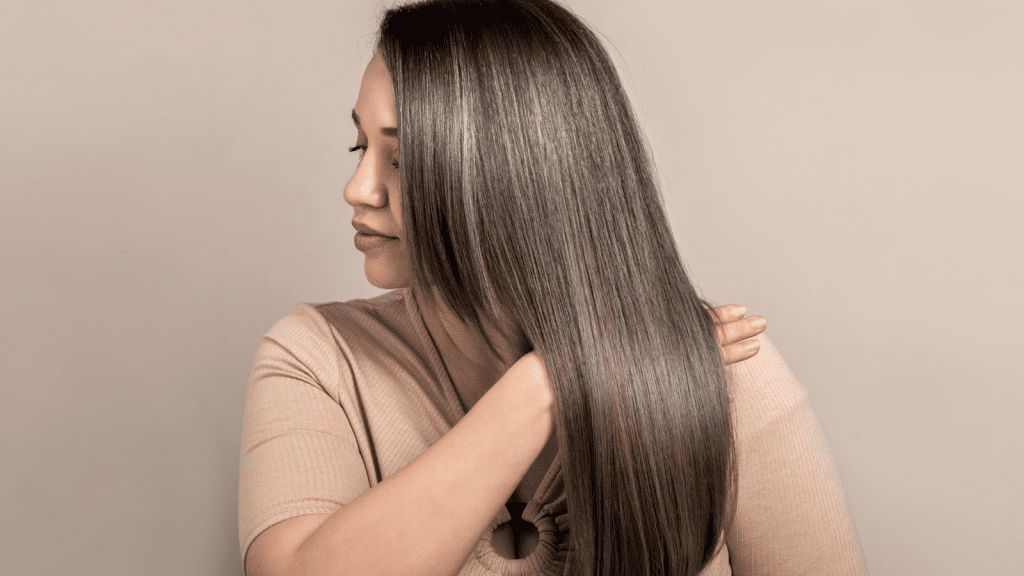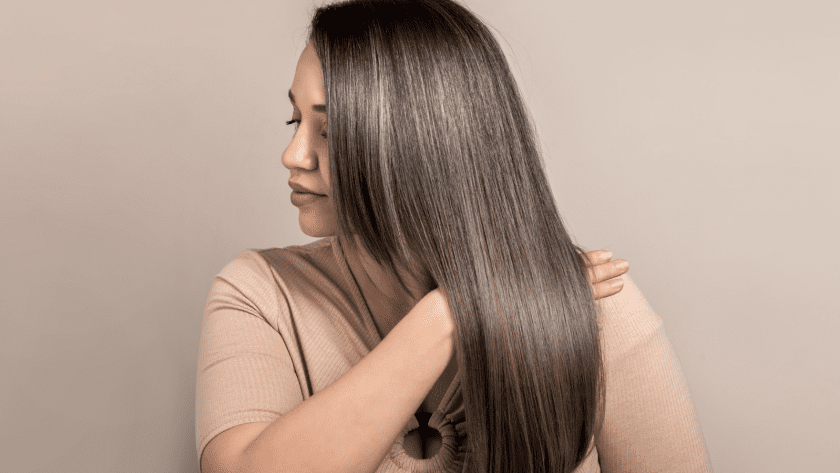Our hair can often be described as a testament to our overall health and internal well-being and an indicator of our daily habits. Yet, despite its importance, many of us remain unaware of the myriad factors that influence our hair’s health and vitality. Like our skin, our hair is exposed to internal and external factors that can either enhance its luster or diminish its natural beauty.
11 Factors Affecting Hair Health
Each element is pivotal, from dietary choices and hormonal fluctuations to the products we generously lather onto our scalps. Moreover, distinguishing between fact and fad can become overwhelming in a world overflowing with hair care advice. This comprehensive guide delves into some of the most common factors affecting hair health, offering insights and practical advice.

Diet And Nutrition
Much like every other part of your body, your hair thrives on nourishment. Every strand of hair is made up of cells that contain a tough protein called keratin. These cells must be consistently fed with vitamins and minerals to keep your hair strong and healthy.
Hair is primarily protein, so that a deficiency can lead to weak, brittle hair. This is why you should ensure your diet includes ample sources like poultry, fish, dairy, and legumes. Vitamins A, C, and E are essential as they provide sebum, collagen, and protection against free radicals.
Aging And Genetic Factors
It’s undeniable that as we age, many physiological changes occur, and our hair is no exception. Aging can result in a reduction in hair density, changes in hair color, and changes in hair texture. Also, if your family has a history of hair loss, early intervention can make a difference. To choose which hair loss treatment will work best for you, make sure you take a look at the hair loss treatments offered by Oxford Online Pharmacy. They can help you reduce thinning and stimulate new hair growth, whether you want tablets, sprays, foams, or shampoos.
Hormonal Changes
You will also undergo hormonal changes throughout life, which can surprisingly affect your hair health. For example, it’s common for women to experience thicker hair during pregnancy, only to face hair loss postpartum. This is due to fluctuating estrogen levels.
In addition, both hyperthyroidism and hypothyroidism can lead to hair loss. Therefore, regular health check-ups and thyroid monitoring can help maintain hair health. While it’s natural for hormones to fluctuate, consult a professional if you notice sudden or severe hair loss, as various treatments are available.
Over-Styling And Heat
The allure of perfectly styled hair often comes at a cost. Regular exposure to heat and various styling products can lead to ‘hair fatigue.’ Over time, constant heat can strip the hair of its natural oils, making it dry and brittle. Chemical treatments, dyes, and even tight hairstyles like ponytails can damage hair over time.
Regularly giving your hair a break from styling allows it to regain its natural strength. Try out heat-free styles or use the cooler setting on your blow dryer. So, if you must style regularly, invest in quality heat protectants. These products form a barrier, reducing the direct impact of heat on your hair shaft.
Stress And Mental Wellbeing
In an increasingly hectic world, stress is a common culprit behind various health issues, hair health included. Chronic stress can disrupt the hair growth cycle, leading to conditions such as telogen effluvium, where hair thinning becomes noticeable. This means that it’s crucial to look for ways to help you relieve any signs of chronic stress you may notice.
Regular relaxation techniques such as meditation, yoga, or simple deep-breathing exercises can mitigate stress. Physical activity is another stress reliever, releasing endorphins that combat stress and potentially promote healthier hair.
Environmental Factors
The environment plays a more significant role in our hair health than we realize. From the water we use to wash our hair to the air we expose it to, environmental factors can heavily impact hair quality. For example, pollution, wind, and UV exposure can all weaken hair, causing it to become dry and prone to damage.
Wearing hats, UV protective hair sprays, and regular deep-conditioning can help combat these environmental stressors.
Hair Products And Chemical Treatments
Choosing the right hair care products is essential. However, with an array of products on the market, it’s easy to get overwhelmed. Some shampoos, conditioners, and styling products contain chemicals that, while temporarily making hair look great, can cause long-term damage.
So, you may want to consider switching to products with natural ingredients, free from harsh chemicals and sulfates. If you opt for chemical treatments, ensure you give your hair ample time to recover in between and nourish it with deep-conditioning treatments.
Scalp Health
Another key factor to consider is the health of our scalp, which plays a pivotal role in determining the condition of our hair. Remember that a healthy scalp is the foundation of healthy hair. Therefore, problems like dandruff, dermatitis, or other scalp infections can lead to hair issues. Check Allurium Beauty to know more about scalp care.
Washing your hair with a gentle, pH-balanced shampoo can help prevent build-up and keep the scalp fresh. However, over-washing can strip natural oils, so find a balance that suits your hair type. Also, massaging the scalp increases blood circulation, promoting hair growth. Moreover, it can be a relaxing ritual that also benefits hair roots.
Regular Trims
Although it might seem counterintuitive, regular trims can help maintain hair health, especially for those wanting longer hair. Each hair strand, as resilient as it might appear, is susceptible to wear and tear. Over time, factors like harsh styling, environmental aggressors, and even everyday brushing can lead to split ends. If left unattended, these splits can travel up the shaft and cause more damage.
While trimming doesn’t directly affect hair growth, it does help eliminate breakage and split ends, ensuring your hair looks thicker and healthier. Moreover, some sections might grow faster than others, leading to uneven layers or a shape that doesn’t flatter your face as well as it could. Regular trims help maintain a desired style and ensure that your hair frames your features perfectly.
Natural Oils
For centuries, various cultures have utilized natural oils to nourish and strengthen hair. In today’s world of countless hair care products, it’s beneficial to look back and harness the power of these time-tested remedies. Renowned for its deep moisturizing properties, coconut oil can penetrate the hair shaft, reducing protein loss and strengthening hair from within.
In addition, argan oil is packed with fatty acids and vitamin E, helping to add shine and tame frizz, making it particularly beneficial for dry or damaged hair.
Washing Your Hair
The simple act of washing your hair can significantly affect its health. While clean hair feels fresh and invigorating, over-washing or using incorrect techniques and products can strip the hair of its natural oils, leading to dryness and potential damage. Moreover, while some people might benefit from daily washing, others might find that doing so leads to dryness or overproduction of scalp oils.
Finding a washing frequency that aligns with your hair type and lifestyle. While a hot shower can be tempting, especially in the colder months, excessively hot water can strip your hair of essential oils. Opt for lukewarm water, finishing with a cold rinse to seal hair cuticles and enhance shine.

